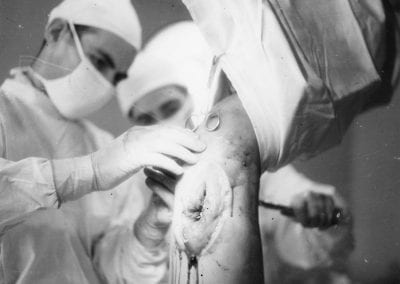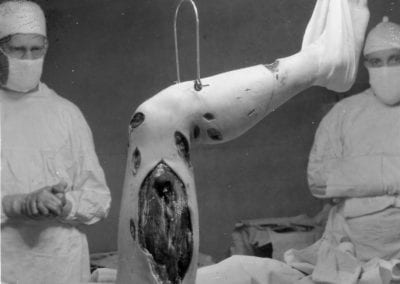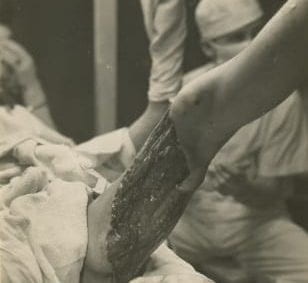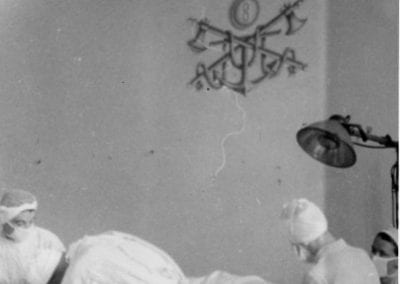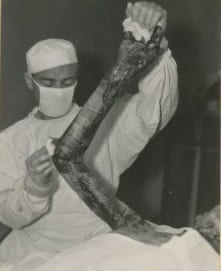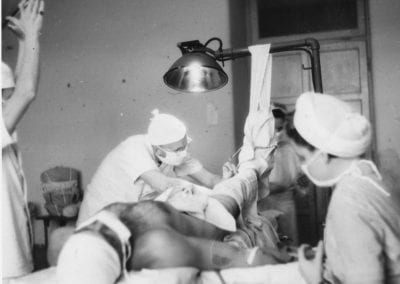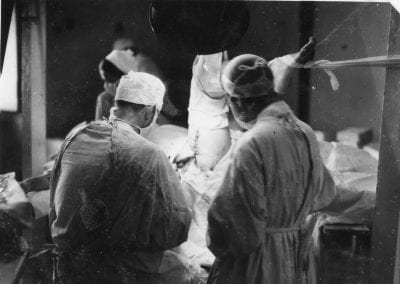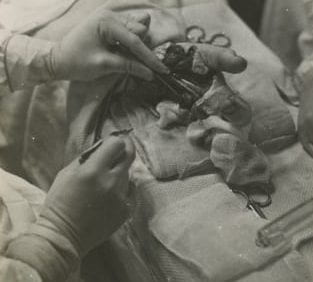Though the doctors and nurses of the 12th General Hospital Unit were highly skilled, the casualties they contended with in a wartime setting pushed them beyond anything they had experienced as civilian practitioners from maggots in wounds to completing an operation entirely by portable battery lamps. They dealt with unfamiliar wounds like those of the genito-urinary organs and complex compound fractures. General hospital personnel also had to handle the relatively sloppy procedures conducted by their colleagues who often had to treat patients on the battlefield in haste before they could be transported to a medical facility and contended with the infections that frequently ensued. As a general rule, surgeons tried spending no more than two hours on an operation in order to treat a greater number of patients who could potentially return to the front lines, which meant tending to the easier cases first. In Rome and Livorno, 12th General Hospital personnel often performed more than seventy operations a day to repair injuries inflicted by war and attend to routine conditions like hemorrhoids and hernias.
Over the course of the three years they spent together as part of the 12th General Hospital Unit, these specialists from Northwestern learned from each other and from their contemporaries in other units. Experimenting with new techniques for performing chest, brain, and abdominal surgeries contributed to the high survival rate of the patients 12th General Hospital practitioners treated. Adoption of practices such as whole blood transfusions combined with medications like sulfa drugs and penicillin impacted the outcome of surgical procedures. The surgeons came to understand the intricacies of different surgeries, from figuring out that a successful debridement required a large incision that exposed each layer of the skin to the fact that early tracheotomies have the potential to save lives and ease the burden placed on nurses during a patient’s convalescence. They even took on newly developed operations like secondary closure that they witnessed for the first time when they were stationed in Naples.

